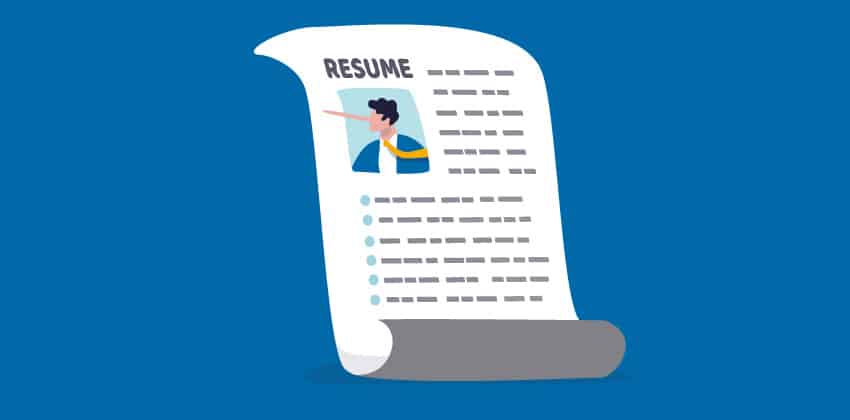
Employers are more interested in employed job candidates than unemployed ones.
Employers usually — and often wrongly — assume that there is “A Reason” someone is out of work, and that the reason is not good.
Quitting your old job to find a new job is a very risky strategy for most of us.
Since job search today can last months, a “stealth job search” is a much better idea unless you have a very strong LinkedIn presence and scarce, but in high demand, skills.
A stealth job search is job hunting while employed, keeping your job search a secret from your employer and other employees.
If you are currently employed, your smartest strategy is a stealth job search. It can help you protect your job and your income, and a below-your-employer’s-radar job search is possible even today.
Employers, not surprisingly, tend to view a job-seeking employee as “disloyal,” not focused on their work, and a threat to company secrets, customer lists, etc. So maintaining a low profile for your job search is the smart thing to do, even though it makes your search a bit trickier.
Unfortunately, it is not unusual to hear of someone being fired for job hunting, an employer attitude that pre-dates the Internet.
While the employer attitude is not new, current technology offers many new ways for a job search to be “outed” and the job to be lost.
How to Conduct a Stealth Job Search
Conducting a “stealthy” job search may feel dishonest. But, quitting one job before you have another one makes finding that new job much more difficult for you.
Realistically, a stealth job search is your most effective option. Following these steps will not only protect your job, they will protect your identity, too.
1. Do not do your job search at work.
You have no guarantee of privacy — even during lunch or other “personal time” — while you are at work. What you say or write at work can be too easily heard or seen by a co-worker. And many confidential job seekers have been “outed” by leaving their resume on the office copier machines or their desks.
2. Do not use any of your employer’s assets for your job search.
Do not use any of your employer’s assets for your search — not a laptop (especially!), the email system, or your work phone number because they can be easily monitored by your employer.
In addition, when you are at work, do not use your employer’s Wi-Fi for sending resumes or applying for jobs using your personal smartphone, tablet, or laptop. Wi-Fi usage is often monitored for security reasons which may uncover the “tracks” of your job search.
Even when you are working at home, your employer may monitor your use of company email, your Web surfing habits on the company computer, and the voice mail messages left for you on your work phone number.
3. Keep a low electronic profile for your job search.
Many job seekers are outed by careless use of social media and email.
- Don’t announce your job search oin Facebook, LinkedIn, Twitter, your blog, Reddit, Quora, GitHub, or other social network. Stay visible where you are usually active, but don’t announce that you are looking for a new job.
- Don’t announce your job search in an email sent to the general world or to your best friend at work. Email is very easily forwarded to others.
- Don’t hire a resume distribution service to post your resume at dozens of job sites or email it to thousands of employers and recruiters. It could so easily end up in the wrong hands and become visible to someone in your current employer’s organization.
A focus on networking, which can be viewed as supporting your employer, is your best bet. Some employers do regularly scan resume banks, like Indeed Resume, Monster, and CareerBuilder, looking for the resumes of current employees. So, if you post on those sites, follow the tips in #7, below.
4. Carefully raise your personal visibility.
Build “social proof” of your expertise and personality. Create a strong and complete LinkedIn Profile in addition to other appropriate websites (more on using social media for job search). Join local professional and business organizations, and be an active member, representing your current employer and yourself.
On LinkedIn:
- Do NOT sign up for LinkedIn’s #OpenToWork option that brands your profile headshot making your interest in finding a new job very clear to everyone who sees your LinkedIn profile.
- Be very cautious about signing up for LinkedIn’s “Shared Career Interests” (formerly known as “Open Candidate”). LinkedIn does NOT guarantee that your employer will be effectively blocked from knowing you have signed up.
- If you don’t have a LinkedIn Profile, start one now, and ramp it up slowly. Be sure “No” is selected for sharing Profile changes so that your employer will not see your activity as you improve your Profile.
- Be open about where you work, and describe your job in ways that reflect well on your employer without disclosing anything considered company-confidential.
- Brag about your employer and their product and services, so your employer may view your LinkedIn Profile as helpful for their marketing (if someone there sees it).
- Contribute Updates once or twice a week, building up to once or twice a day over several weeks. Share good information about your field that helps increase your credibility.
- Read How to Use LinkedIn for a Stealth Job Search for more details plus do’s and don’ts.
- Be sure you have non-work contact information visible on your LinkedIn Profile.
On Facebook:
- Avoid sharing photos or anything that would compromise your image as a professional.
- Clean up what you have shared and double-check your privacy settings to minimize risk.
- Don’t announce or share information about your job search.
- Turn the About section of your Facebook account into another version of your resume.
Having a good network of people who know you is the best insurance you can have against a long, painful job search after a job loss. Network building is a lifelong project, regardless of your employment status or job satisfaction, and a strong network should make you more valuable to your employer, too.
5. Monitor and clean up any “digital dirt” about yourself.
Google (and Bing, etc.) yourself regularly. Just type your name into the search box to see what the search engines are showing people about you. [For details about online reputation management, read Defensive Googling.]
IF there is something bad in the first 10 or 20 results, you need to raise your personal online profile to push those entries down below #20. Raise your visibility in social media. Establish a LinkedIn Profile with your professional name, if you don’t already have one. Keep it up-to-date, filled with appropriate keywords for you, and saying very nice things about your current employer (in case anyone from there is looking).
[For more ideas about where to establish public profiles to help you manage your online reputation, read Social Proof — Required for a Successful Job Search.]
6. Let Google track employers and opportunities for you.
Develop a list of potential employers where you would like to work, and sign up for free Google Alerts (google.com/alerts) for jobs posted on the organizations’ websites or when related news about the employer is picked up by Google.
Have the alerts sent to your personal (not your work!) email address! See Job-Hunt’s Using Google Alerts article for tips and detailed information.
7. Be VERY careful about posting your resume on a job board.
Avoid posting your resume on any job board, if possible.
If you MUST post, do NOT openly post your resume, particularly with your name and the name of your current employer visible! Unless you can post your resume as “private” or “confidential,” don’t post it.
Applying directly on your target employers’ websites is MUCH better than applying on a job board.
Sign up for the job alerts, but don’t have them sent to your work email address where your current employer could find them. Read Job-Hunt’s Cyber-Safe Resume article for tips on converting your resume to one that will protect your privacy and your current job.
When your job search is over, be sure to delete all the copies of your resumes posted on job boards. (If you cannot delete the resume at the end of your job search, turn it into nonsense, particularly your name and contact information.)
Reality now is, that if you have good online visibility supporting your presence as a professional and good worker, your next job may find you without you needing to go out looking for it.
8. Use a non-work phone number on your resume.
Using your employer’s name, address, and phone numbers as your contact information is a very good way to blow your cover, and makes it impossible for you to stay in touch if you leave or lose your job. Just think how awkward it would be if your boss answered your phone and a recruiter was calling, or a co-worker picked up your messages, and found one from a recruiter!
Be cautious about using your personal cell phone if you also use it regularly for your job. Your employer may be able to monitor your contacts as well as your calls on that phone. If they can monitor your cell phone, use a different phone for your job search, copying over your contacts to the new phone.
The best solution may be a Google Voice number. This is a free service from Google. You can make this number public on your resume, applications, and social media. Google will then forward it to whatever phone number(s) you choose.
9. Use a personal or other non-work email address for your job search.
See #1, above, for the reason. In addition, if you lose your job, you’ll lose access to your work email account, so anyone trying to reach you about your job search will be unable to contact you. Avoid the problem by not using your work email address.
This recommendation most definitely applies to your LinkedIn account, too! Your LinkedIn account is linked to an email address — be sure that address is not your work email address so you don’t become one of the job seekers who loses access to your LinkedIn Profile when you lose your job.
Again, Google may offer the best, lowest-cost solution. You can set up a Gmail account to use for all public communications (and your LinkedIn Profile). Then, regardless of where you work or live, you will have a “permanent” email address you can always access, as long as we have Google.
Read To Be Hired, Be Reachable – How to Safely Publish Your Contact Information on LinkedIn (lack of contact public information) for more details.
10. Disguise your current employer’s name on your resume.
You don’t want your job search to be “outed” by your boss or a recruiter accidentally (or on purpose) stumbling over your resume on Indeed or CareerBuilder, etc. So, don’t put your current employer’s name (e.g., IBM or Acme Widgets, etc.) on your resume.
[And, if your job title is unique to your employer, replace that, too.]
Substitute a description in place of your employer’s name – so, assuming you work for IBM, in place of “IBM” on your resume put “Multi-National Fortune 50 Information Technology Company.” If you work for Acme Widgets, you would describe your employer as “Manufacturer of [description of Widgets, without using the word “Widget”].”
This recommendation also applies to product and/or service names unique to your employer. So, if you worked in the Acme Widget marketing department, assuming that “Widget” was a unique, trademarked brand name, you would describe your work without using the word “Widget” in the job title or description in addition to disguising the company name.
The goal is making sure your resume doesn’t appear in a search on the employer’s name through the resume database — that’s a set of keywords you don’t want to have on your resume (unless you are a former employee)! Yes, your resume may not be included in some relevant search results, but you won’t become unemployed.
For an example, see the Sample ASCII Text Resume.
11. Don’t schedule job interviews during your working hours.
Taking time to interview when your employer expects you to work is not a good idea. That would involve lying to your current employer. This is a very risky approach. Better to schedule interviews on a “personal day” (if your employer allow them), or at another time when you are not expected at work (weekends, evenings, holidays, or vacation).
Typically, your loyalty to your current job will be appreciated. If the potential employer objects, you could ask how they would feel if you were currently working for them.
12. Request respect for your current employment.
This should be an unnecessary action item. Unfortunately, it isn’t. When you have established contact with recruiters or potential employers, request that they use your reference list and not contact your current employer when they are checking your references.
I know job candidates who have been “outed” when the potential employer reached out (via LinkedIn) to the current boss for a reference.
The Bottom Line on Stealth Job Searches
Unfortunately, a secret job is necessary to retain your income stream. Do your best not to let anyone at your current job know that you are job hunting. Even your best friend at work might let something slip that could result in you losing your job, so best not to put anyone (or yourself) in that position. Stay focused on your current job, doing it as well as possible while you search for your new job.
More on Conducting a Stealth Job Search
- How to Use LinkedIn for a Stealth Job Search
- Managing Your LinkedIn Settings for a Stealth Job Search
- Recruiter’s Advice: How to Find a Job While You Have One
- Networking During a Stealth Job Search
 About the author…
About the author…
Online job search expert Susan P. Joyce has been observing the online job search world and teaching online job search skills since 1995. A veteran of the United States Marine Corps and a recent Visiting Scholar at the MIT Sloan School of Management, Susan is a two-time layoff “graduate” who has worked in human resources at Harvard University and in a compensation consulting firm. Since 1998, Susan has been editor and publisher of Job-Hunt.org. Follow Susan on Twitter at @jobhuntorg and on Facebook, LinkedIn.
More about this author…
Don't forget to share this article with friends!




